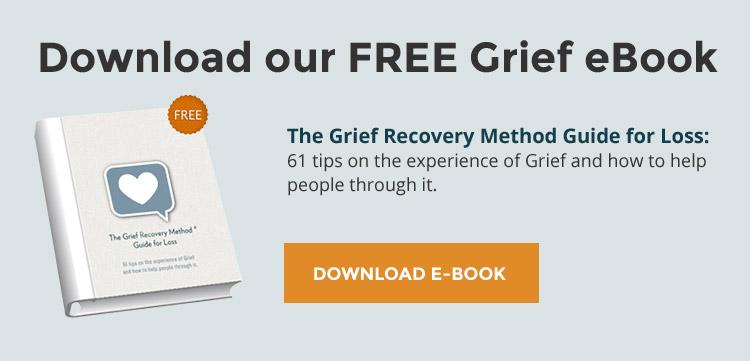If you’re like most people you probably dream of the day you’ll retire. If you’re close to retirement you may have made a calendar counting the days until you’re free or might be planning a huge retirement party. You probably have plans about what you want to do when you no longer have to report for work everyday. What an exciting time! But it can also be a huge adjustment.
Although retirement is a joyous occasion it’s also a loss event.
Grief is the conflicting feelings caused by the change of, or the end in, a familiar pattern of behavior. Almost everything changes when you retire.
Here are 6 common changes experienced by retirees:
- Missing a Sense of Purpose – For many people, their career part of their identity? That’s normal. When you go to work everyday you know what your responsibilities are and how you contribute to the whole. After retiring, some people struggle to figure out their new purpose because they had the same one for so long.
- Changes in Daily Routine – If you’re like most people you have some sort of daily work routine. You probably wake up at the same time for work, drive the same route to and from the office, and say hello to the same people every day. Getting used to a new life at home can be difficult, even while you’re simultaneously thrilled to spend more time at home.
- Missing Co-Workers/ Loss of Social Interaction - Going to work means you see the same people each and every day. You build relationships with everyone you work with even if you aren’t close friends. You might even miss seeing the barista where you get your morning coffee or the office security guard who always greets you with a smile. You might not interact with as many people during your day-to-day activities after retirement and that can be tough for some people to adjust to. On the other hand you might have worked alone, so it might be tough to get used to interacting with more people after you retire.
- Change in Mental Stimulus – Some retirees feel bored because they aren’t using their brains in the same way they did at work. Conversely they might feel more tired because they are using their minds in different ways.
- Change in Physical Activity – If you sat behind a desk for years you might be thrilled to retire and have more free time to golf or go for walks. If you worked a physically demanding job, such as construction, you might be excited to sit around reading books and relax while fishing. Whether you are more dormant or more active it’s a change in a familiar pattern of behavior and might cause grief.
- Change in Income – Changes in your financial status can be difficult. Whether you have more or less money after retiring you have to learn to live within different means.
Retirement is almost always exclusively associated with happiness, but it can simultaneously be difficult. You have to adjust to a new way of doing almost everything. One way to make the transition easier is to be prepared. You owe it to yourself to live the rest of your years feeling good. Find a Grief Recovery Specialist in your area today who will give you useful tools to say goodbye to your work life.
If you’re retired, what was retirement like for you? What happened that you didn’t expect? Is it still difficult?

























Comments
Marla Brumbaugh
First of all, I have to tell you I love my husband of 22 Years DEARLY - we are best friends as well as husband and wife. Made it through five kids and two careers! Here's the thing:
I have worked alone as a fine artist for fifteen years. I have set my own routines, habits and set of friends I'd see everyday. The kids are grown, so with just that alone, my time changed greatly, and to my benefit. My husband worked 12 - 16 hours a day, so we'd most often meet back at the same dinner table, later in the evening. I had to answer to no one ever since I left the marketing & illustration job I'd had for years before becoming self- employed.
Then . . . my husband finally retired last year. Being eight years older than me (I am 60 - he's 68), HE retired, but I fully expected my days to stay much the same, with a few happy tweeks. I was thrilled we'd have more time together. Boy, was I unprepared for reality.
It has been a year since his retirement - and my self motivation has fallen apart. (ALL OF these next thoughts are my own) - it's as if I have to be retired too, not keeping my own schedule intact. Its not that I want to hang over him all day; but I've learned that if I see him walking towards me, I know I am going to get interrupted on whatever thought or act in progress. I am not used to someone else being on my radar screen! Its hard for me to be productive with that. I have problems getting started again. If I have a creative project / thought happening, my train of thought just flies away. Why even start anything? (I am sorry if this is a jumbled message ... my fingers are also flying).
I have not gotten a darn thing done in a whole year's time. Now, when I am at home, I am so unmotivated - and basically ignore / stay away from hubby all day to avoid "suggestions". It is not the retiree who is depressed - it's me. I've managed to let my studio "die on the vine". Why?? I loved it and anything attached to it. I'd made a name for myself. It's always been 90% of my personal identity too. Thank God my hubby is doing pretty well staying busy, working on his own creative endeavours and volunteering. Even when he is gone, I still can't "push it over the hill" to go to my studio and work. I'll just have to pause or stop all together when he gets back. This is the best I can explain it, since I can hardly grasp it myself. I cannot stay this way - it is such a waste of my days - and my life.
Has anyone here come out the other side of this kind of dilemma and revived themselves? Can you offer words of wisdom? I'm so bored and sad, and can't seem to give myself a jump-start.
Anonymous
Marla, thank you for commenting. I imagine that this is a huge adjustment period for you. If you want to talk with someone in your area, please follow this link to find a certified grief specialist in your area: https://www.griefrecoverymethod.com/grief-support-groups. You can also call us anytime if you need some guidance, at 1-800-334-7606.
Katie
Marla, it sounds to me like you need your own space, a shed or outbuilding or something where you can work uninterrupted... plus one of many conversations where you tell your husband in kind terms that your time is valuable, in every way, and you simply cannot and will not be interrupted. Then train him not to interrupt.
Add new comment